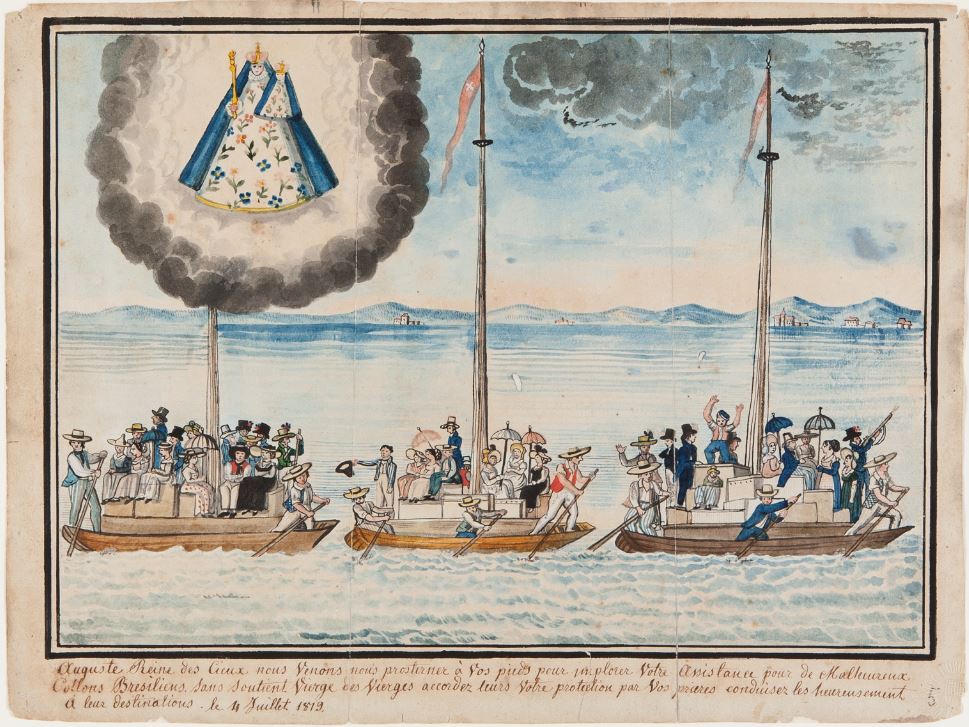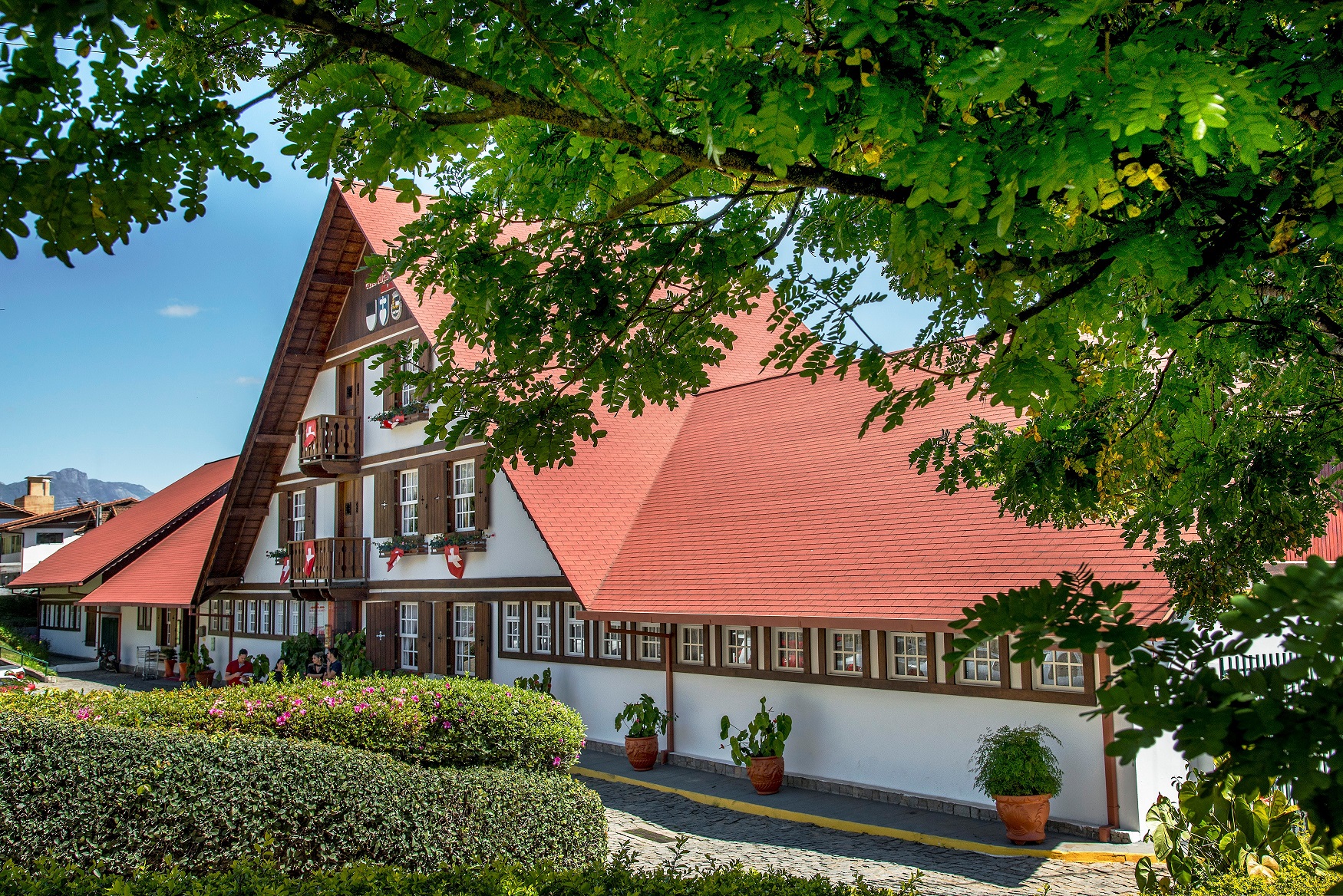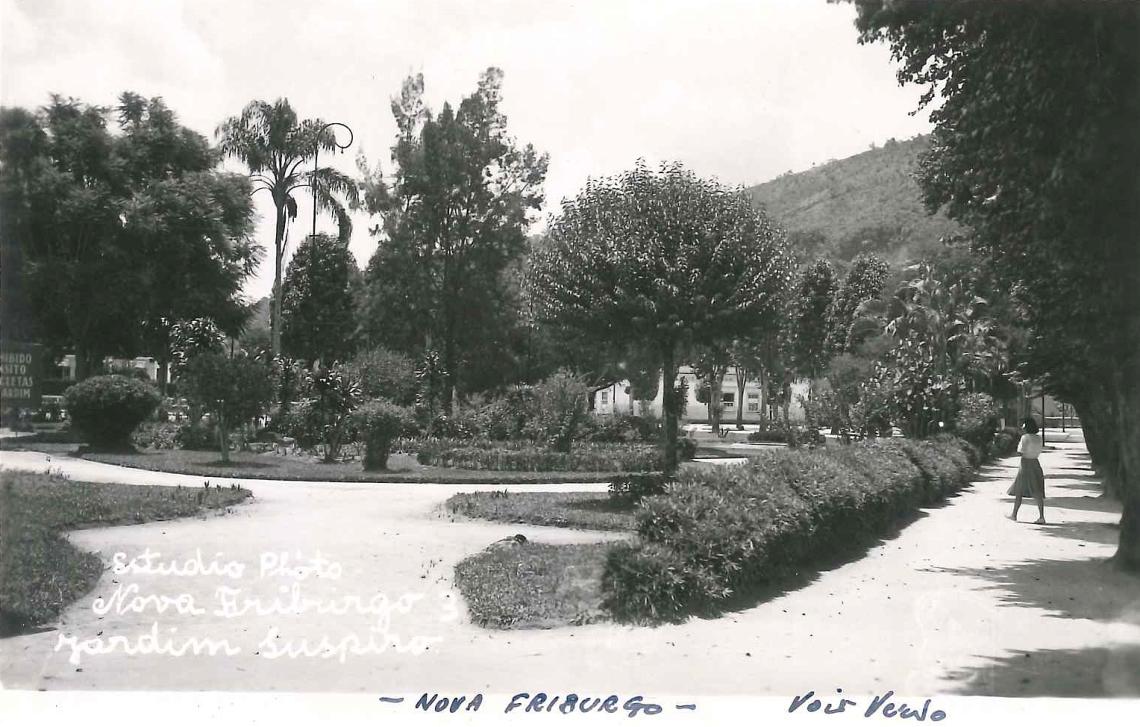Fribourg - Nova Friburgo
On 16 May 2022, a bronze plaque commemorating those who emigrated from Fribourg to Nova Friburgo will be unveiled in Place Nova-Friburgo in the presence of Thierry Steiert, Mayor of the city of Fribourg, Raphaël Fessler, President of the Fribourg-Nova Friburgo Association, and Her Excellency Cláudia Fonseca Buzzi, Brazil's ambassador to Switzerland.
A history that goes back two centuries
On 11 May 1818, a colonisation treaty was signed by Sébastien-Nicolas Gachet – an agent of the government of Fribourg – and John VI, King of Portugal and Brazil, with a view to founding the Brazilian colony of Nova Friburgo.
The canton of Fribourg was quick to ratify this agreement because Switzerland was suffering from famine and a serious economic crisis, especially the poorer cantons. This was due to a period of global cooling in 1816-1817 following the violent eruption of the Tambora volcano in Indonesia, which destroyed harvests and trade.
For the Dzodzets (the patois term for residents of Fribourg), emigration was an opportunity to escape the unproductive land and the harshness the climate, and sometimes that of the political and religious authorities too.
In July 1819, over 2,000 Swiss citizens from eleven modern-day cantons decided to make the giant leap and cross the Atlantic. No less than 830 Fribourg people from about 70 different towns left the country, leaving more space for those who remained. Some 100 people from the city of Fribourg and its immediate environs made the journey. They set out for Brazil on 4 July 1819 from Estavayer, via Basel and Rotterdam.

Ordeals and drownings
After a great many misfortunes and various ordeals over several months, they were finally in sight of the promised land. 313 people died at sea. The total number of deaths by all causes was around 600, 283 of these from our own canton. After an 80 day voyage, the 437 Fribourg natives on board the Urania arrived safely at their destination on 30 November 1819. Another party comprising 357 people from Fribourg and Bern left on 12 September 1819 and only arrived on 4 February 1820.
The colony reached its full complement on 18 February 1820. The survivors, wretched and hungry, were allocated accommodation in the hundred or so dwellings that were already there. The early days of the Swiss Brazilians were harsh indeed, marked by much sickness and death, exhausting land-clearing work and mediocre harvests.
Subservient emigrants
The colony’s economy was something of a sham and only propped up by subsidies, which ceased in 1821 when the King of Portugal returned to Lisbon. The Swiss Philanthropic Society (Société philanthropique suisse) was subsequently founded in Rio de Janeiro by Swiss traders to help the émigrés. The Society is still going strong and has just celebrated its bicentenary. The more enterprising emigrants left this disenchanted Eldorado to grow coffee in other parts of Brazil, albeit with the help of a subjugated workforce, as slavery was not abolished in Brazil until 1888.
Germans from the banks of the Rhine arrived soon after, swelling the disparate ranks of the first wave of people to colonise Nova Friburgo. A generation after they first arrived, the community counted only count 443 Swiss citizens among its number. From 1857 on, the Swiss Federal Council started to concern itself with the working conditions of the Swiss emigrants, which bordered on slavery. This endeavour helped the workers achieve a guaranteed minimum wage.
A memory kept alive
Contrary to popular belief, the memory of those who ‘signed up for Brazil’ has not been lost in the mists of time due to a number of books based on the Nova Friburgo era (see the bibliography below) and to the Fribourg-Nova Friburgo Association, which was formed in the 1970s at the initiative of Martin Nicoulin, René-Louis Rossier and Pierre Kaelin.
Since then, the number of exchanges has grown and families separated by the ocean for over two centuries are starting to re-establish connections.
A first visit to Nova Friburgo by a Fribourg delegation took place in 1977.
Place Nova-Friburgo was formally opened in Fribourg on 22 June 1981.
The Swiss Centre (Casa Suiça) was built at Conquista in Brazil by the Fribourg-Nova Friburgo Association and opened its doors in 1987. It houses a cheesemaker's, a chocolaterie, a shop and a restaurant, as well as a cultural section, including a monument, a concert hall and an exhibition room, which was opened in 1996 in a ceremony attended by representatives of the City and of the Canton of Fribourg.
Following the landslides at Nova Friburgo in January 2011, described as Brazil’s most deadly natural disaster in modern times, the canton and city of Fribourg joined forces to send relief funding.

Find out more
Online:
- Fribourg-Nova Friburgo Association
- Genealogical and heraldic website of the canton of Fribourg (Fribourg families who emigrated to Nova Friburgo)
- 1700, Information sheet from the city of Fribourg, no. 341, January 2018, p. 12-13.
Reading material:
- Georges Ducotterd and Robert Loup, Terre! Terre! Récit historique de l’émigration suisse au Brésil en 1819, [Land! Land! A historical account of Swiss emigration to Brazil in 1819], preface by Thierry Steiert, Fribourg, published by Editions de la Sarine in 2018 (reprint of the original 1939 edition).
- Robert Loup, ‘Les Pèlerins de l’illusion ou Fribourg au Brésil (1817-1820)’ [Pilgrims and their illusions or Fribourg in Brazil (1817-1820)], which was published in serial form in the daily newspaper La Liberté in 1942.
- Martin Nicoulin, La Genèse de Nova Friburgo. Emigration et colonisation suisse au Brésil, 1817-1827 [The origins of Nova Friburgo. Swiss emigration and colonisation in Brazil, 1817-1827], Fribourg, published by Éditions universitaires in 1973, reissued several times.
- Henrique Bon, Un aller simple pour Nova Friburgo [A one-way ticket to Nova Friburgo], original edition in Portuguese (2008), translated by Robert Schuwey [into French] and published by éditions Faim de siècle in 2017.

